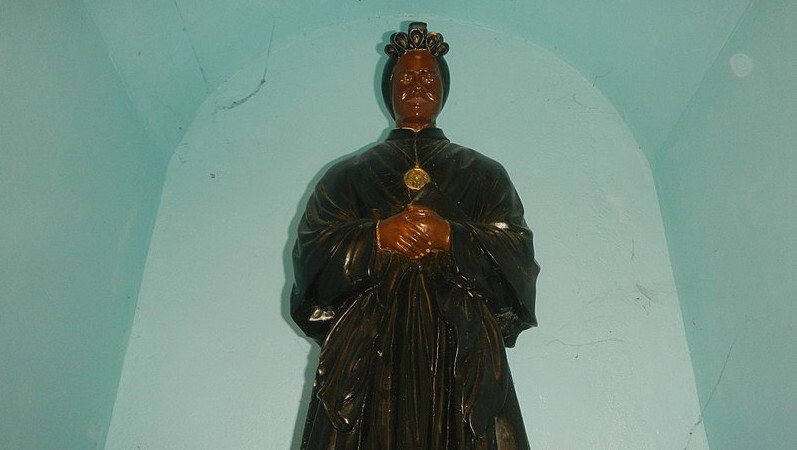
Saint Josephine Bakhita | Wikimedia Commons
The Diocese of Lansing celebrated the feast day of St. Josephine Bakhita, who was an African slave who later became a nun in Italy, overcoming her difficult life.
The feast day is observed on Feb. 8.
“Today is the Feast Day of Saint Josephine Bakhita, the African slave turned Italian nun turned Heavenly saint. Happy feast day! Saint Josephine Bakhita, pray for us!” the Diocese of Lansing shared on Facebook.
According to Catholic.org: “St. Josephine Bakhita was born in Sudan around 1869. When she was around the age of 8, she was kidnapped by Arab slave traders and forced to walk over 600 miles barefoot to a slave market. Over the next 12 years, she was bought and sold so many times that she forgot her original name. Many of her masters were cruel and abused her. One of her owners brought her to Italy and then left to go on a business trip, leaving her in the care of the Canossian Sisters in Venice. With the sisters, Josephine learned about God and was deeply moved. When her master returned, she refused to leave the sisters. Josephine’s case was taken to court, where it was decided that because slavery was outlawed in Italy, Josephine was a free woman. She stayed with the Canossian Sisters and served them for over forty years. Later in life she would say that she would thank her kidnappers, because without them she might never have learned about God.”
“Josephine is the patron saint of human trafficking," according to Prevent HT. "Anti-Trafficking International describes her as ‘a shining ray of hope for human trafficking victims and an inspirational demonstration of how a victim can recover from their trauma and become whole again.’”
Christianity was a revolutionary religion at the time that it was founded as it elevated everyone to a beloved son or daughter of God.
According to the Catechism of the Catholic Church, paragraph 2414, “It is a sin against the dignity of persons and their fundamental rights to reduce them by violence to their productive value or to a source of profit. St. Paul directed a Christian master to treat his Christian slave ‘no longer as a slave but more than a slave, as a beloved brother ... both in the flesh and in the Lord.’”






 Alerts Sign-up
Alerts Sign-up